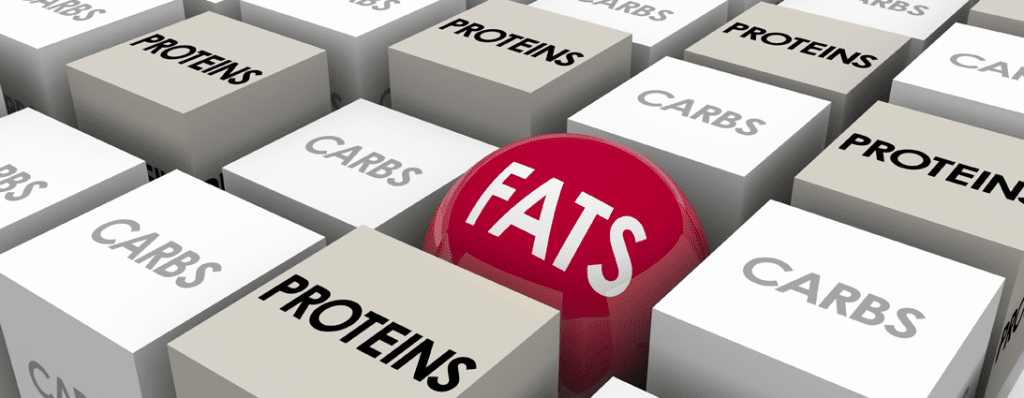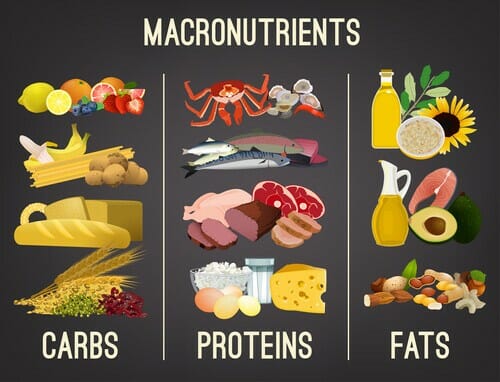This is probably not the first time you’d have heard about macronutrients. When it comes to diet, nutrition, health and weight, macronutrients (Macros) occupy an intrinsic position, as they are the main factor in body composition. But what exactly are these macros and why are they so important?
Although macros sound like an alien term, but it really means nutrients needed in big(macro) quantities. The term is used to refer to Carbohydrates, Protein and Fat – now, this is not new to us. Macros are the primary supplier of nutrients and calories. Your body requires these macros for energy and growth. Each macronutrient has its own significance and plays its role in the development and composition of the body. Therefore, it is important to design your diet in a way that helps you consume the ideal amount of macronutrients.
The energy provided by macros vary –
Carbohydrates and Proteins provide 4 KCal of energy for every 1 gram, whereas Fats generate 9 KCal of energy for 1 gram.
Table of Contents
IMPORTANCE OF MACROS
CARBOHYDRATES
Carbohydrates are the main source of energy as they can be metabolised by the body quickly and they come in 2 forms: Simple and Complex Carbs. Simple carbs are foods like sugar, refined flour, etc. that is easily broken down into glucose. Complex carbs are food like whole grains, vegetables and fruits that contain fibre.
Fibre (present in complex carbs) helps in flushing out toxins and waste from the body that improves the intestinal health and simplifies the digestion process. This macronutrient is important in ensuring one stays fuller for longer.
Carbs are important to provide the body with an instant boost of energy that is necessary for the proper function of brain, heart, kidney, muscles and intestines. After providing the body with sufficient energy, the remaining carbs are converted into glycogen and stored in the liver and skeletal muscles for future use. Glycogen is essential to provide energy while indulging in physical activities.
However, too much of carbohydrate is unhealthy as it can spike sugar levels. The trick here is to make better food choices by opting for complex carbs that are found in whole grains, beans, vegetables, legumes and fruits. Complex carbs break down slowly and are a rich source of vitamins and minerals. Additionally, they keep you full longer; maintain insulin level and lower cholesterol.
PROTEIN
Protein’s capability of rebuilding, revival and repair makes it extremely important for the maintenance and growth of the body. When protein enters the body, it performs a function called protein synthesis, which breaks down and rebuilds cells. This aids in several processes like – renewal of cells, maintenance of muscles, repair of tissues and production of hormones and enzymes. Protein also acts as an antibody that improves immunity.
Protein rich foods include meat, seafood, dairy, egg, nuts and lentils. Protein isn’t used by the body directly, but is broken into amino acids in the digestive system. Our body requires 20 amino acids, out of which 9 amino acids are called essential amino acids as the body cannot produce them. Animal sources of protein are considered to be high quality protein source as they provide all the essential amino acids.
As protein is required for growth and development, it is important to have at least 1 gram of protein per 1 kg of your lean weight. For example, if your lean weight is 50 kilos, you need to target 50 grams of protein consumption on a daily basis. If you are looking to blast excess fat and build muscle mass, stick to a diet that is moderately high in protein. Or a diet that has at least 25%-35% of it calories coming from proteins.
FAT
If you’ve been cutting out fats from your diet, it’s time to befriend them. There is a misconception that fats are the bad guys that permanently reside in our body and add extra kilos to our weight. Well, that’s not the case, fats are extremely important.
Fats are broken down to fatty acids that provide energy. Fats play an important role in supplying omega-3 and omega-6 fatty acids. One should strike balance between omega-3 and omega 6 by consuming them in the ratio of 5:1. Omega-3 is extremely important for performing the vital functions. Unfortunately, these fatty acids cannot be produced by the body. Therefore, it is important to meet your fat requirements.
Fats are extremely important in absorbing all the vital nutrients and vitamins such as vitamin A, E, D and K from your diet. They also play an important role in maintaining the body temperature. It is also essential for growth, proper nervous functions, maintenance of healthy brain, proper structure of cell membrane and hormone production. However, the most important factor is opting for healthy fats. Not all are healthy, and unhealthy ones like hydrogenated fats are more like to cause cardio vascular problems. Opt for healthy saturated fats from cold water fishes like salmon, herring and mackerel, grass fed meat, butter, coconut and avocados.
All three macronutrients are important for performing several vital functions. However, the proportion between the three would vary depending on the individual and their lifestyle. Take wise meal decisions that help you acquire the ideal proportion of macronutrients to stay fit, healthy and happy.
Check out how our program EAT FIT, GET FIT can help you develop healthy eating habits that will boost your health index without compromising your food preferences.

